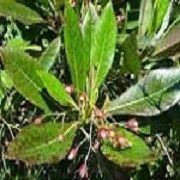
Bois De Rose
Get Price Quote
Bois de rose, literally 'wood of rose' is given the French name to prevent confusion with actual rosewood. The tree (Aniba rosaeodora) from which the essential oil is distilled originates from tropical Africa and Brazil (where the oil is known as 'oleo de Pau-Rosa'). It grows wild and in abundance in the Amazon forests. A similar tree is found in Guyana (where the oil is known as 'Cayenne'). The distilleries in Brazil are situated in and around Manaus and the huge quantities of oil produced in the past. Once as much as 150 - 300 tonnes annually. Primarily for Linalool. Principally for the American and European markets have resulted in the deforestation of millions of hectares. The oil is distilled from the bark of the tree. But to obtain it the whole tree is felled. Despite a drop in the exportation of the oil in recent years the environment and climate have been irrevocably changed. Many people are saying that the oil should be completely banned and its usage stopped. Many aromatherapists, however, still sell products containing it.

Bois De Rose
Get Price Quote
Bois de rose, literally 'wood of rose' is given the French name to prevent confusion with actual rosewood. The tree (Aniba rosaeodora) from which the essential oil is distilled originates from tropical Africa and Brazil (where the oil is known as 'oleo de Pau-Rosa').It grows wild and in abundance in the Amazon forests. A similar tree is found in Guyana (where the oil is known as 'Cayenne').The distilleries in Brazil are situated in and around Manaus and the huge quantities of oil produced in the past. Once as much as 150 - 300 tonnes annually. Primarily for Linalool.Principally for the American and European markets have resulted in the deforestation of millions of hectares.The oil is distilled from the bark of the tree. But to obtain it the whole tree is felled. Despite a drop in the exportation of the oil in recent years the environment and climate have been irrevocably changed.Many people are saying that the oil should be completely banned and its usage stopped. Many aromatherapists, however, still sell products containing it.The smell of bois de rose is valued above all. It is woody, mossy, flowery, quite rose-like. It is also a good base, a natural fixative, thicker and more viscous than other essences and is greatly used in perfumery.The principal constituent: Between 70 and 80 per cent of the oil is linalool and this has been much valued by perfumers for many decades. However, linalool can now be reproduced synthetically.So there is no excuse to continue the usage of bois de rose. Obviously the therapeutic properties of a synthetic will not be the same nor is the smell. But it is better than continued pointless destruction.There are other sources of linalool too: the leaves of a plant from Taiwan (called Ho or Shiu) yield an oil with 80 - 90 per cent linalool.Equally other essential oils are rich in linalool: aspic, basil, bergamot, coriander, lavender, lemon, thyme and ylang-ylang. Although the therapeutic properties won't be identical, they can happily serve as a substitute.The Amazon natives used the bark in therapy for its medicinal properties and indeed it has a remarkable action on the skin. Helping wrinkles, stretch marks and scars.It is a great toner, and can be used for ageing skin (with rose, it could rejuvenate) and for skin that has lost its tone or has become flabby after illness or weight loss.Due to Government Regulations natural oil is not steadily available , however Bois de Rose by BMV can effectively replace the natural oil and is also a very interesting product for future creations. Its soft floral odour forms a very nice bridge between the top notes and floral middle notes.
Best Deals from Rose Flower

gold foil rose
Get Price Quote
gold foil rose, Gold Plated Playing Cards, gold plated pen

Artificial rose flowers
Get Price Quote
Artificial rose flowers